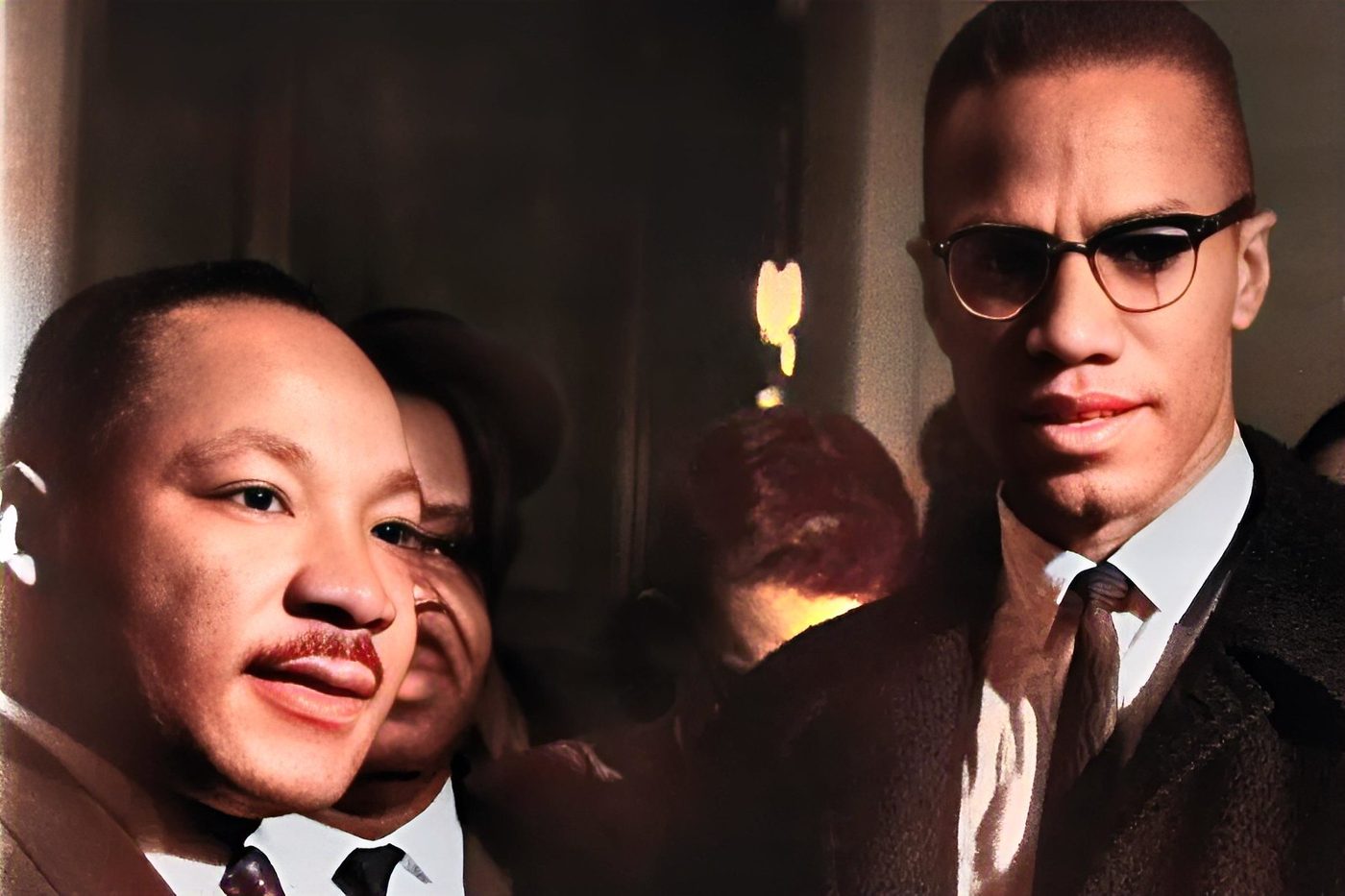In 1992, when I was 12 years old and in the sixth grade, the United States was swept up in a wave of interest surrounding Spike Lee’s film Malcolm X. Released that November, the movie catapulted Malcolm X’s image into mainstream culture. The “X” symbol was everywhere: on T-shirts, hats, coffee mugs and posters, as an emblem of fashion and fierce pride.
It wasn’t just a marketing phenomenon; the nation was captivated by Malcolm’s ideas. Television programs aired retrospectives, journalists explored his relevance and conversations about his message found their way into the public discourse. I remember it all vividly—not just as a craze, but as a cultural moment that left a lasting impact on how I understood the world.
Even at 12, I felt something profound in Malcolm X’s presence. But let me be clear: I didn’t understand him—not then, and not fully now. All I knew was I felt an innate connection to his defiance, courage and uncompromising dedication. His words had a gravity that I couldn’t shake.
When I heard him speak in interviews on television or saw Denzel Washington channel his integrity in Spike Lee’s masterpiece, I knew instinctively that Malcolm X embodied something rare. He was a man of unwavering principles.
Growing up with implicit racism
Growing up in Lowville, New York, a quaint village on the edge of the Western Adirondacks in the Tug Hill Plateau region with more cows than people, I had no reason to admire Malcolm. In Lowville, racism was so implicit it went unquestioned. People spoke about black people—whom they rarely saw outside of Fort Drum’s in-town military housing complex (the base was 45 minutes away)—as “coloured.” It was a place that upheld stereotypes and harbored ignorance without a second thought.
My early years in this environment shaped me more than I understood at the time. As a kid, I cluelessly giggled along with racist jokes, and on Halloween, some friends and I would go “N-word knocking”—sneaking up to random houses, knocking and running away. My school’s locker room conversations were littered with racial and gender slurs, and even teachers would make racist comments without a hint of shame. I didn’t realize it then, but I’d absorbed a bigoted worldview.
Yet, in the midst of this, there were also teachers, mentors and coaches who rejected these views and spoke up for inclusivity. My parents, too, raised me to love my neighbour and to see all people as children of God.
Sports and music broadened my horizons; it was hard to be a Boston Celtics fan without loving Robert Parish, to root for the Mets without admiring Darryl Strawberry, or to cheer on my beloved Miami Dolphins without respect for Mark Duper and Mark Clayton. At that time, I was beginning to fall in love with rap and hip-hop, as well as jazz and rhythm and blues. These influences, alongside Malcolm’s, became seeds of change.
Words like seeds
Somehow, amid this environment, Malcolm X’s words reached me. I was a white 12-year-old wearing an “X” hat, laughing at racist jokes, clueless about the world beyond my hometown’s limited perspective. But even then, I sensed that Malcolm saw through it all—through my town’s culture, through my ignorance.
It would take two decades for me to confront the depths of what he was telling me, but Malcolm’s words were like seeds. He knew, in a way I didn’t yet, that my town’s mindset was steeped in historic and institutionalized racism, degrading not only black and brown communities but anyone held captive by that prejudice. He showed me, without ever having set foot in my small hometown, that my cultural and social environment was tainted.
Malcolm’s ties to Rochester
Today I live in a much more diverse setting. Malcolm X visited Rochester, New York several times, most notably in February 1965, just days before he was assassinated in Harlem. His last speech was delivered at Corn Hill Methodist Church, where he shared a powerful message: that the struggle for black freedom wasn’t just an American problem but a global one. He’d come to Rochester before, in January 1963, speaking at the University of Rochester and engaging with local leaders on issues facing the black Muslim community.
Dr. Laura Warren Hill’s work, particularly “Malcolm X’s Last Speech: Black Liberation and American Identity” from the Journal of American History, offers a deeper understanding of these visits by capturing Malcolm’s ties to Rochester and his widening scope of activism. Knowing that he stood in the very city where I now live connects me to him in an unexpected way. It’s a reminder that his legacy isn’t just history—it’s alive, resonating with those willing to listen.
Gradual transformation for the better
One of my friends who read an early draft of this piece put it better than I can: “Adolescence is this, for many of us: cringe-inducing, multifaceted, confused, full of conflicting ideas. That’s how we grow, though. We don’t know any better until we do, and then, hopefully, we do better (to paraphrase Maya Angelou).”
At the time, I didn’t have the clarity to question my upbringing or to understand the messages I was absorbing. But looking back, I can see Malcolm’s words slowly at work, pushing me towards a deeper awareness, a gradual transformation I’m still reckoning with today.
As a teenager, I struggled to understand the weight of Malcolm’s words, but they never left me. Today, as an adult, I can look back and see how his influence quietly shaped my thinking. Malcolm’s pilgrimage to Mecca broadened his views; he later wrote in The Autobiography of Malcolm X, “I am not a racist. I’m not condemning whites for being whites but for their deeds.”
He’d transcended the narrow confines of racial hatred to embrace a universal call for justice and dignity. His message was radical, not in the divisive way my community feared, but in a way that demanded integrity from all people, regardless of colour.
Now, as I listen to Malcolm on YouTube or read his speeches, I feel a powerful sense of self-respect. Malcolm never wavered in his integrity—it was immovable. When he spoke, even when I was a young and ignorant kid, I knew he was calling for something deeper than racial identity. He was calling for dignity and loyalty to oneself. He made me realize that even in my small, sheltered corner of the world, I could strive to be better than the place that raised me.
Humbly called to a higher standard
There is one last point I think needs to be made. It’s about personal growth and humility. Looking back at my younger self, I offer this impressionable and naive kid some grace. I’m sure Malcolm looked back at his younger life and felt shame for some of the things he did.
We’re all in a state of constant development, and as I reflect on my odyssey, I realize that growth requires an understanding that we won’t always get things right, but we can keep striving for better. Just as Malcolm X’s life was one of continuous transformation, so is mine, and so is everyone’s. We can’t be ashamed of where we started, but we should be committed to where we’re headed.
Malcolm once said, “Education is the passport to the future, for tomorrow belongs to those who prepare for it today.” That resonates with me now in a way it never could have at 12. Malcolm taught me to look critically at my surroundings, to challenge the world’s wrongs. He taught me that education isn’t just about learning facts; it’s about cultivating awareness.
Today, I still carry the lessons Malcolm gave me, even if, as a boy, I couldn’t fully grasp them. Looking back, I see that he called me to a higher standard, one that I strive to live up to each day.
«RELATED READ» I WILL NOT FEAR: An over-the-airwaves epiphany on Martin Luther King Jr. Day»
image 1: Wasfi Akab; image 2: Picryl

